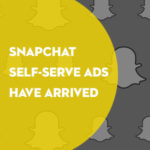As reported on the Daily Texan, student debt hit $914 billion during this year’s second quarter. Unemployment stood at 8.3 percent during the summer season. With increasing student debt numbers and the struggling job market, a college education seems to be an exponential monetary burden that weighs little in the competitive, idle job market. As a result, universities and colleges are turning a head from traditional recruiting methods and peeking at marketing models and business plans to exceed admission and retention goals. Marketing. Education. What’s hot? The Internet. Progressive thinking. Altruism — and using the Internet, progressive thinking and altruism for the greater good of mass higher education.
Revolutionizing Higher Education
You can’t expect institutions to use archaic learning tools and methodologies when mobile devices, virtual communication, online learning platforms and cutting-edge applications are prevalent and applied in everyday life. Institutions can’t afford to dismiss technological advancements and ideas that appeal to the young, tech-savvy population, enrich learning and progress teaching curriculums. Because technologies evolve and revolutionary ideas develop by the moment, it can be a costly endeavor for academic institutions to integrate the latest devices and ideas into curriculums; however, schools that leverage the best digital trends can attract students, maximize learning and spearhead the academic landscape.
Free Education
Imagine free higher education. Think computer science and history courses lead by acclaimed professors from top universities. Tuition-free. Online with live chat. On computers. Via the Web. Massive Open Online Courses (MOOCs) are a radical learning tool that high profile universities are embracing and investing in. These online courses, that are open to anyone, “feature a series of short, video segments in which an instructor describes a particular concept or skills, then gives exercises, quizzes and exams,” according to USA Today. Although MOOCs may provide certifications and documents to passing and excelling students, students who take courses do not earn a degree or college credit. It’s currently an emerging experiment that’s testing the boundaries of what defines a quality education and who has the rights to get one. From lower-income families to learners who want to brush up on skills in a particular discipline, MOOCs are becoming more prevalent and widely accepted for knowledge expansion and career advancement.
MOOCs Platforms
- Udacity is labeled by Time magazine as a private educational organization with more than 739,000 students. The MOOC concept started when Stanford research professor Sebastian Thrun taught an artificial intelligence course online to more than 160,000 people. The success of the free course inspired Thrun to co-found Udacity, which fosters online university-level education worldwide. The instructors Thrun and Peter Norvig are Stanford scientists and internationally recognized artificial intelligence experts who promote the vision of “bringing education to places that can’t be reached today.” Students can watch lectures from 14 classes that range from Introduction to Physics and Statistics to Advanced Design of Computer Programs and Applied Cryptography.
- EdX is a non-profit enterprise founded by the Massachusetts Institute of Technology (MIT) and Harvard. MIT and Harvard each invested $30 million to fund and support interactive online educational experiences. EdX executes the renowned educational missions of MIT and Harvard for a wide diversity of on-campus and off-campus students worldwide. Not only is EdX’s mission to provide a dynamic environment for high-level learning via the Web, it’s also dedicated to researching the synergy of learning and technology.
- Coursera is a social entrepreneurship that is also influencing the mission for credible higher education online. Launched by two Stanford professors, Coursera partnered with leading universities Stanford, the University of Michigan, the University of Pennsylvania and Princeton to educate students around the world via the Web for free. Currently one millions students are registered in Coursera. The goal is for distinguished professors from top universities to empower and provide a world-class education to people who otherwise wouldn’t have the luxury. Sixteen research universities have signed on with Coursera to offer MOOCs. The higher educational platform offers more than 115 courses, including humanities, science, science fiction and poetry. Many Coursera courses are based on state-of-the-art autograding technology and peer evaluations.
What’s at Stake
Any progressive idea, especially in education, receives its fair share of criticism.
Critics ask:
- What are the academic standards, if any?
- How are the progress and development of each student evaluated and measured?
- Will MOOC online certificates have actual merit in the job market?
- What kind of fees will students eventually have to start paying?
- Is the inability to earn college credits or a degree an impediment?
- Is it unrealistic and incomparable to in-classroom and in-person dialogue?
- Will students sacrifice the memorable college campus and social experience?
- Are these online courses sustainable?
As various MOOCs and respective platforms transpire, time will tell how any kinks are worked out or concerns are addressed. As an experiment, MOOCs expect to change and grow based on successes and failures. From student-to-student evaluations and study groups to college credit and non-traditional subject matters for a vast global audience, the possibilities are intriguing. Time magazine editors and writers have recently embarked on the MOOC experiment by signing up for and blogging about an array of MOOCs such as Gamification, Mathematical Thinking, Sustainability, Computer Science and Securing Digital Democracy. Despite any backlash, MOOCs have profoundly caught the attention of prestigious universities and hundreds of thousands of students who are committed to learning.
What’s to Gain
MOOCs are pioneering a mission to educate globally and freely. MOOCs democratize higher education and provide opportunities for lower-income families and individuals who can’t afford high tuition prices.
In addition, the educational experiment:
- Keeps universities competitive and connected
- Opens doors for potential profitability and revenue with licensing and advertising
- Challenges the scope of higher educational curriculums and methodologies
- Presents the idea of job placing MOOC students with partner companies
- Extends opportunities to developing countries such as Mongolia and India
Future of Online Learning
With Internet access, a computer, and hunger to learn, anyone in the world can now acquire first-rate higher education. Regardless of setbacks such as financial insecurities, location and age, MOOCs don’t discriminate. Institutions that adopt MOOCs can help eliminate the stigma of online, distance education as well as embrace learning experiences that are less mainstream. With big name universities such as Duke, the University of California-Berkely, the University of Washington, and the University of Virginia jumping on board, the MOOCs movement is garnering elite attention. A dynamic experiment and ambitious idea, MOOCs will help participating academic institutions radically adopt new models for education and market big ideas.
This post was written by Danielle Smiley








